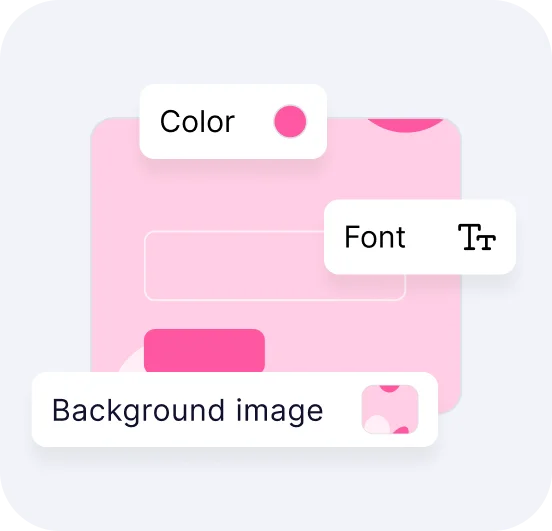1. Import into your account
View this confidentiality agreement form and click on "use template" after making sure this is what you are looking for.
View this confidentiality agreement form and click on "use template" after making sure this is what you are looking for.
Add or remove questions through forms.app's drag & drop interface and match your brand style.
Customize the URL, change the access levels, create a QR code, or get the embed code.
Just tell us what you’d like to create in a few words. forms.app AI will understand your use case and create a free template for you.
A confidentiality agreement which is also called a nondisclosure agreement-NDA, is a type of legal contract used to keep sensitive company information private. You can include confidential information, including company secrets, trading secrets, business plans, financial information, and other related subjects. It is a great way to secure your sensitive data and legal rights. You can also get more details by reading our article on confidentiality article.
Any person or organization that wants to secure their personal information can use a confidentiality agreement form. Besides agreements between companies, businesses can also use these forms to secure sensitive information when employing a new member and include it in their employment agreements.
NDAs also can be used to protect intellectual property rights, such as when a company is disclosing confidential information about a new product or invention to a potential licensee or investor before filing for a patent or other IP protection. Here are some example use for confidentiality agreements :
There are different NDA agreement types depending on the area of use and limitations. For example, doctors and psychiatrists use HIPPA, which is a legal necessity. You can also create time-limited or permanent NDAs. Also, when employing a new member, you can use employee confidentially forms that ensures the security of company secrets. Here are some examples of uses for non-disclosing agreement forms:
Since the most important feature of this type of agreement is its limitations, we gathered some important details to follow when creating or signing this type of agreement. Here are several most used restrictions you can add to your confidentiality agreement:
Online confidentiality forms are legally binding, and you can use the electronic signature feature to get the other party’s consent. With forms.app, creating online contracts and agreement forms is simple. On forms.app, you can easily create online agreements or consent forms without knowing any code. Include your terms and conditions, and start creating your online confidentiality form right now.
You can collect information for an agreement to be specially drafted and then complete your direct deal by collecting signatures and presenting details of it with your confidentiality agreement form. So you can choose from suitable templates and decide which type of agreement you need and start immediately.
The simple answer to this question is “yes.” Online agreements are legally binding, in the exact way that paper contracts are. You can easily create an online agreement form and collect responses without worrying. These agreements will be as effective as printed forms, so long as the respondents give their consent to the statements or sign the document.
Electronic signatures are considered legal in most of the world, including the United States and the European Union. E-signatures hold the same legal status as paper-based signatures, and they are easier to collect. By adding a signature field to your form on forms.app, you can easily get people’s consent and let them sign your online document.
Creating online contracts and agreement forms is an easy job with a form builder like forms.app. People can simply build online agreements or release forms on forms.app without any need for coding. It is possible to create agreement forms for many purposes, add your terms & conditions, and collect consent from your respondents. In order to create your own form, you can simply follow these steps:
Online agreement forms can be used for personal, academic, medical, or business purposes. In order to help you use the full potential of online forms, forms.app offers many advanced features and form fields for its users. For example, you can create a complex form with conditional logic, collect signatures, add your own terms and conditions, add your company logo to your form, and customize your form design with a single click.


